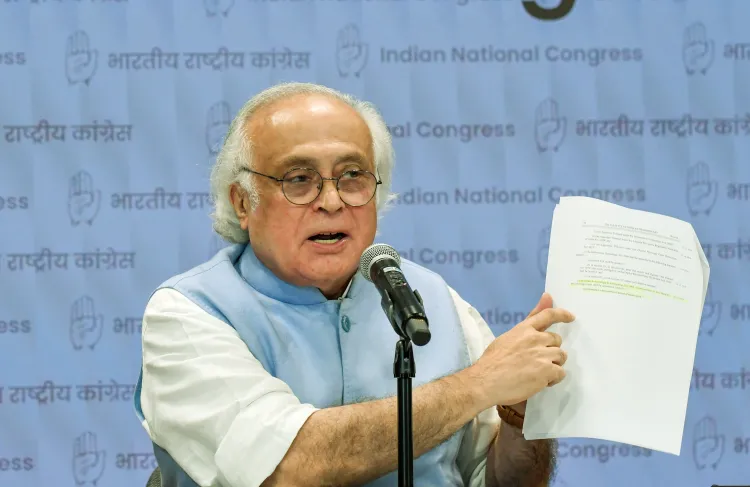Why is Jairam Ramesh Criticizing the New Labour Codes?

Synopsis
Key Takeaways
- Jairam Ramesh criticizes the new labour codes for lack of essential worker protections.
- The codes consolidate 29 existing laws without introducing significant reforms.
- Key demands include a national minimum wage of Rs 400 and urban employment guarantees.
- Concerns persist among trade unions regarding worker safeguards.
- Regional examples from Karnataka and Rajasthan showcase innovative labour reforms.
New Delhi, Nov 22 (NationPress) Congress General Secretary Jairam Ramesh on Saturday vehemently condemned the recently introduced labour codes, asserting that they merely consolidate 29 existing laws without addressing crucial worker requirements, such as a national minimum wage of Rs 400 per day and an employment guarantee for urban areas.
He highlighted that the codes are missing fully notified rules, which hinders their complete enforcement, even though they are marketed as significant reforms.
India's labour landscape experienced its most comprehensive revision since Independence on November 21, when the government implemented the four labour codes.
These codes encompass wages, industrial relations, social security, and occupational safety and health, replacing 29 outdated laws to form a unified legislative framework aimed at modernizing labour regulations.
While the government contends that the new structure simplifies compliance and enhances the ease of doing business, trade unions remain concerned about the potential erosion of worker protections.
In a post on X, Ramesh remarked, "29 existing labour laws have been restructured into 4 codes. This is being promoted as a revolutionary reform when the Rules are still not notified. But will these codes fulfill the 5 essential demands for Shramik Nyay for India’s workers?"
He enumerated the demands as a national minimum wage of Rs 400 per day (including for MGNREGA), a Health law ensuring universal health coverage of Rs 25 lakh, an employment guarantee act for cities, comprehensive social security for all unorganised workers (including life and accident insurance), and a pledge to abolish contractual employment in core government roles.
Ramesh referred to the Congress' Shramik Nyay platform, which outlines five justice guarantees for workers, stressing that the new codes do not fulfill these commitments.
He also cited the gig worker welfare laws enacted in Congress-led Karnataka in 2025 and the prior framework introduced in Rajasthan in 2023 as examples of more progressive, worker-centric reforms that the Centre has overlooked.
"The Modi Government must learn from the examples set by the Congress Government in Karnataka and the previous Government in Rajasthan, who have pioneered labour reforms for the 21st century with their innovative gig worker laws that came before the new codes," he concluded.









